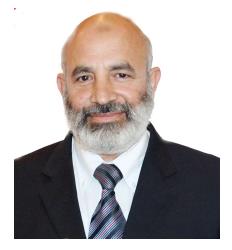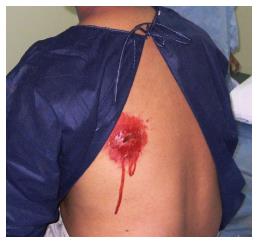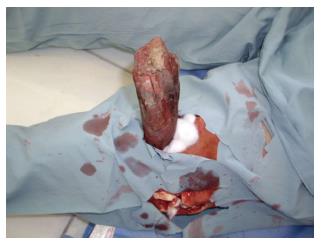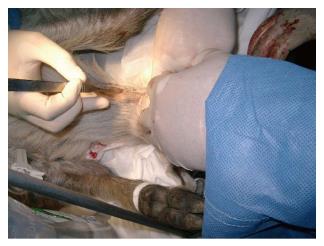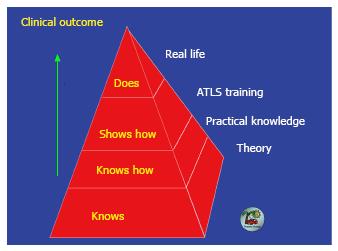Copyright
©The Author(s) 2016.
World J Crit Care Med. Feb 4, 2016; 5(1): 12-16
Published online Feb 4, 2016. doi: 10.5492/wjccm.v5.i1.12
Published online Feb 4, 2016. doi: 10.5492/wjccm.v5.i1.12
Figure 1 Fikri M Abu-Zidan, MD, FACS, FRCS, PhD, Dip Applied Statistics; Professor, Acute Care Surgeon, Point-of-Care Sonographer, and Statistical Consultant; Department of Surgery, College of Medicine and Health Sciences, UAE University, Al-Ain, United Arab Emirates.
Figure 2 A moulaged simulated patient having a stab wound to the left chest wall with tension pneumothorax.
Figure 3 A moulaged simulated trauma patient with a penetrating impalement injury to the left thigh with left femur fracture and superficial femoral artery injury caused by a piece of wood.
Figure 4 Practical training on performing diagnostic peritoneal lavage on anaesthetized goats using the open technique and a transverse sub-umbilical incision.
Figure 5 Miller’s pyramid for gaining clinical skills in Advanced Trauma Life Support courses.
ATLS: Advanced Trauma Life Support.
- Citation: Abu-Zidan FM. Advanced trauma life support training: How useful it is? World J Crit Care Med 2016; 5(1): 12-16
- URL: https://www.wjgnet.com/2220-3141/full/v5/i1/12.htm
- DOI: https://dx.doi.org/10.5492/wjccm.v5.i1.12









